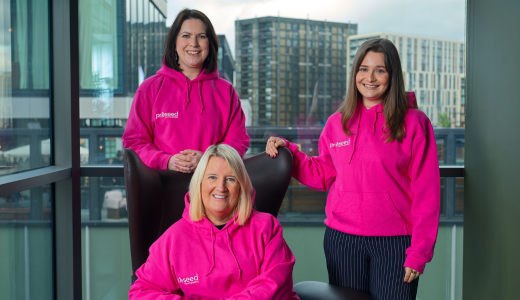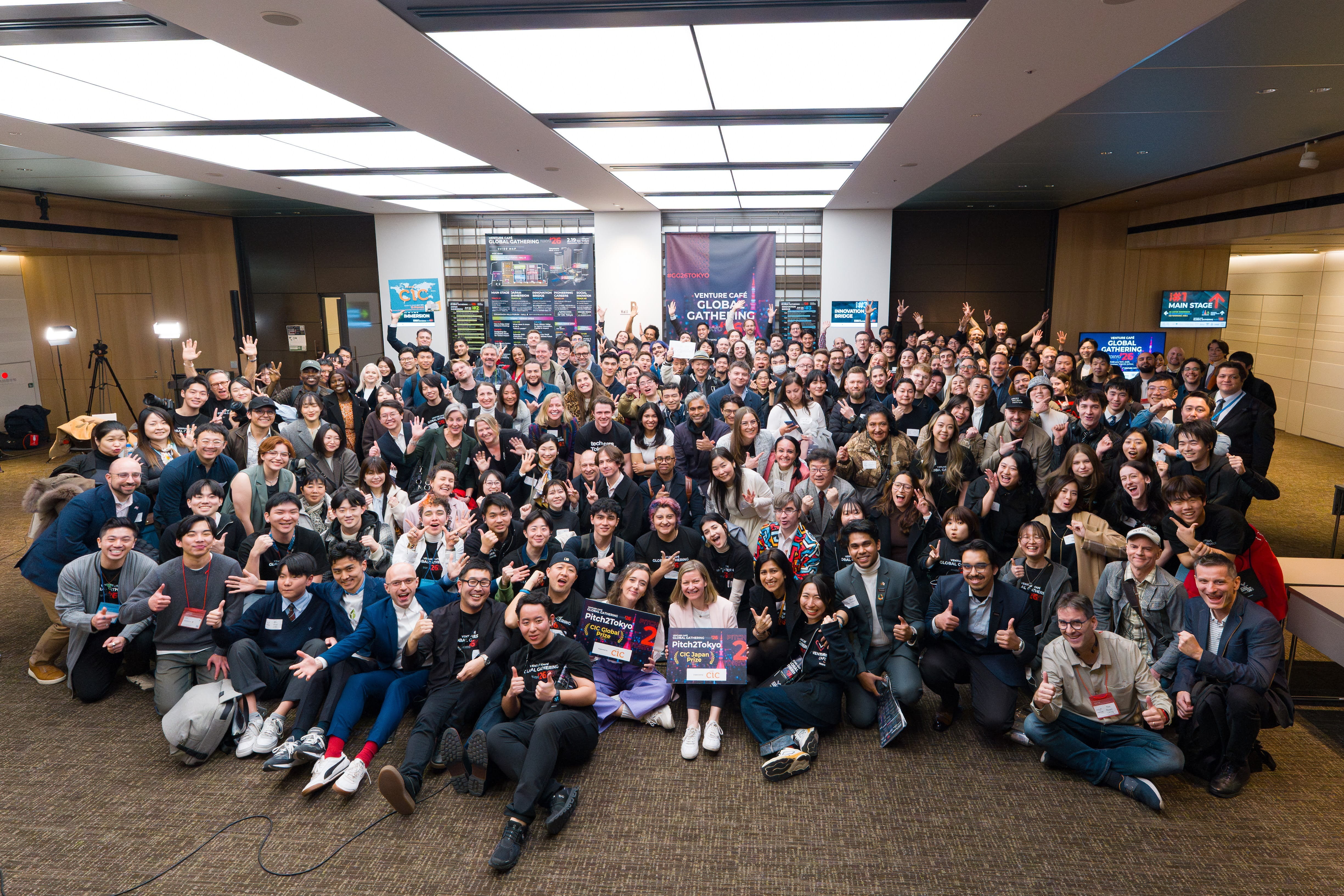
Startups are an important part of Manchester's tech and digital ecosystem. That's why Manchester Digital offer access free AWS credits to eligible companies, as well as other startup membership benefits including investment advice, speaking opportunities and much more.
We also thought it would be a good idea to catch up with tech journalist, Martin Bryant as he examines the current accelerator landscape
The accelerator model first emerged in 2005 in Cambridge, Massachusetts. Y Combinator invited a cohort of students to develop technology companies in close proximity over the summer, offering seed funding and support in return for a small equity stake on a standard set of terms.
TechStars launched in Boulder, Colorado, the following year, building on the Y Combinator concept. And as time went on, the success of startups like Dropbox and Airbnb helped popularise the idea of an accelerator as a legitimate way to kickstart a new company.
In the UK, accelerators have exploded in popularity in recent years. A recent Beauhurst report found that the number of companies taking part in accelerators in the UK has increased by an average of 78% each year since 2014. The headline stats indicate that taking part can be worthwhile. Beauhurst says companies that attend accelerators raise 44% more money than those that don’t, and they are 75% more valuable.
But it’s not always easy to know which accelerators offer the best value, especially since over time the term ‘accelerator’ has broadened in definition. It can now refer to corporate innovation programmes that work with startups, remote business development programmes, and even less-formal business support for tech companies. And meanwhile, investors have found other ways to support early stage tech companies at scale through fresh approaches that build on the accelerator concept.
The benefits of an accelerator
Some entrepreneurs see taking part in an accelerator as having been essential to the early success of their business. John Kershaw is CEO of Manchester-based M14 Industries, which took part in the Ignite programme. “When I joined Ignite I knew there were some things about business I didn't really understand. All my formal education and training is as a software engineer, and business has always just sort of happened. Ignite changed all that for me; the structure they gave, and the sheer volume of practical, helpful advice, become a really fundamental part of our foundation.
“The advice I got from mentors, coaches, investors, and peers was real and important, and came from an honest place; everyone wants to help everyone.”
Sometimes, an accelerator can be useful for helping entrepreneurs figure out that they’re taking completely the wrong direction. Tom Young took part in the Ignite programme a few years ago with a company called Sourcely.
“They helped us understand [Sourcely] wouldn’t work and then we launched a new idea that got traction. The value of Ignite was learning how to validate ideas and do a startup when having no startup experience.”
This process led to Young and his cofounders launching Repairly, which took part in TechStars’ Virgin Media accelerator in London in 2016. Repairly went on to be acquired by Unipart Group in 2018. Now Young runs Manchester-based startup Taptrip, and he speaks favourably about both accelerators he’s been a part of.
“TechStars was incredible… the amazing companies on the program created a cohort effect. [TechStars] created a sense of community and helpfulness between the companies… we had a weekly founder dinner [where] a guest speaker would join while [we all shared] company KPIs.”
Corporates, meet startups
Increasingly, accelerators are linked to specific sectors, helping tech companies grow by connecting them with larger business that can benefit from their services. L Marks has built a thriving business out of running what some would call ‘corporate accelerators,’ but that CEO Daniel Saunders prefers to refer to as ‘innovation labs.’
L Marks partners with big names like United Utilities, BMW, and Arsenal Football Club, bringing in tech companies to solve specific problems as part of structured 10-week programmes. Saunders says that while corporate engagement with startups used to be “a fad” that often bore no useful fruit, today such activity is linked to core business outcomes. Indeed, L Marks insists on it, arguing that in order for both the corporates and the tech companies participating to benefit, both must commit to helping each other. “Both sides need to be open to collaboration – both sides need to listen to each other with an attitude of openness.”
Manchester-based DigitalBridge took part in the L Marks-run John Lewis JLAB programme, and found it valuable.
“It was a 12 week program based in London,” says DigitalBridge CEO David Levine. “We had to be there at least once a week. [It] involved lining us up with number of stakeholders whose role in the business meant what we were doing was interesting to them. We put together an in-store trial in the 12 weeks and demoed the results.
“We got profile and PR from it and was good validation that what we were doing was interesting to retailers, but we were already a bit big and mature for them.”
Levine warns startups to make sure that the corporates involved in any programme they take part in have suitably planned and resourced any activity that happens after the programme ends. He says that otherwise it can be difficult to make meaningful progress with any partnership.
The accelerator explosion
While corporate accelerators are on the rise, the traditional Y Combinator model, where investment tends to be backed by a group of private investors, seems to be fading away. Part of the reason for this may well be that entrepreneurs today have more knowledge than their forebears, and more choice when it comes to getting support.
For example, NatWest runs ‘Entrepreneur Accelerator’ programmes across the UK, including in Manchester, which take no equity from the companies they support. They offer free office space, access to mentoring and coaching, legal and technical advice, and access to the bank’s network of contacts. It may not be as intense or specifically tailored to tech startups as a traditional accelerator, but it doesn’t necessarily need to be.
Much of the knowledge needed to start and run a high-growth tech business can be found in books and online resources these days. Tristan Watson, Managing Director of Ignite, says the startups that apply to take part in its programmes today are far more knowledgeable about the basics of running a tech company than those from back when Ignite launched in 2011.
This advancement is partly due to more knowledge being more widely available, and partly because the cost and speed of getting a working prototype together has fallen over the past decade from weeks to days.
“You don’t need to give up your job anymore. 20 years ago, you needed £100,000 to start a tech company. 10 years ago, you needed £10,000… now it’s easy to start something tomorrow,” says Watson.
And just as the startups have changed, so have the accelerators. Ignite has shifted from traditional ‘bootcamp’-style three-month cohorts, to longer, geographically distributed programmes. These combine remote learning and support with regular two-day ‘on-sites’ where the companies come together for more intensive learning and mentoring sessions.
Watson says this distributed model means Ignite can support a wider range of companies, run by a far more diverse variety of founders.
“When we started, it was all about sales and fundraising – building the next unicorn. But we realised there are lots of ways to build businesses and our role is to help find the one that suits the founders. We offer a more holistic model of support now.”
This holistic approach includes ensuring founders look after their physical and mental health, and training them to recruit diverse teams by avoiding unconscious bias.
And it’s not just Ignite that’s changing. The entire accelerator model is evolving to the point where it’s grown legs and arms and spawned children that have gone off to do their own thing.
For example, Entrepreneur First takes talented individuals and helps them develop technology companies from scratch. Indie.vc is an early-stage investment fund that has co-opted elements of the accelerator model to help it choose and support the companies it invests in.
Even the biggest names in the space are trying new things. Y Combinator has gradually increased the number of teams it backs each year, to the point where its Silicon Valley ‘demo day’ event now requires two stages, and it’s impossible for attendees to see a pitch from every company. Y Combinator has also embraced remote learning via its Startup School programme.
And TechStars has launched TechStars Studio, an initiative that sees the company get more directly involved in developing and validating new startup ideas.
A similar approach can be found in Nova. This Liverpool-based company has similarities to an accelerator and an early-stage investor, but in practice is more akin to a co-founder. Nova finds entrepreneurs with expertise in a particular market and a good business idea, and comes on board to launch a startup with them.
When your investor is your cofounder
Many solo entrepreneurs struggle to find the technical cofounder they need to turn their business into a reality. Nova fills that gap, bringing the development and marketing expertise of its large team to the table. Founders don’t need to put any of their own money in, and they only need to commit to one day per week working on their startup at its earliest stage, so they don’t have to quit their job until they’re sure the business is going somewhere.
If the startup takes further investment later, Nova’s share will dilute as a cofounder’s would, although Head of Marketing, Paul Dodd says the company can also put money into later rounds as a traditional investor might.
Dodd says Nova currently backs more than 40 startups across the UK. The model certainly won’t suit every founder, but its existence reflects a diversity of support available to technology startups that simply didn’t exist just a few years ago.
Whichever form of support entrepreneurs choose, Ignite’s Tristan Watson highlights two important points for them to keep in mind. Firstly, they should understand what they ultimately want from their business (a quick sale? An IPO? A successful but small business?) and also the motivations of the people providing the support, asking what they need out of the deal to make it worth their while.
M14 Industries’ Kershaw concurs: “I got really lucky. I can't imagine having a better accelerator experience, but I have heard plenty of stories from people who've had bad experiences. Try and figure out what you need, or what you don't know, and see if the accelerator offers what you're after. And spend a bit of time looking through their mentors and previous cohorts.
“You need people who'll make you better, not pressure you into short term thinking.”
Keep those points in mind and choosing the right kind of accelerator or support programme for your startup will be much easier.
Need advice? Join Manchester Digital.
If you're a startup in need of advice, join Manchester Digital. As well as eligible members being able to access free AWS credits, there are a host of other startup membership benefits including investment advice, speaking opportunities and much more.







